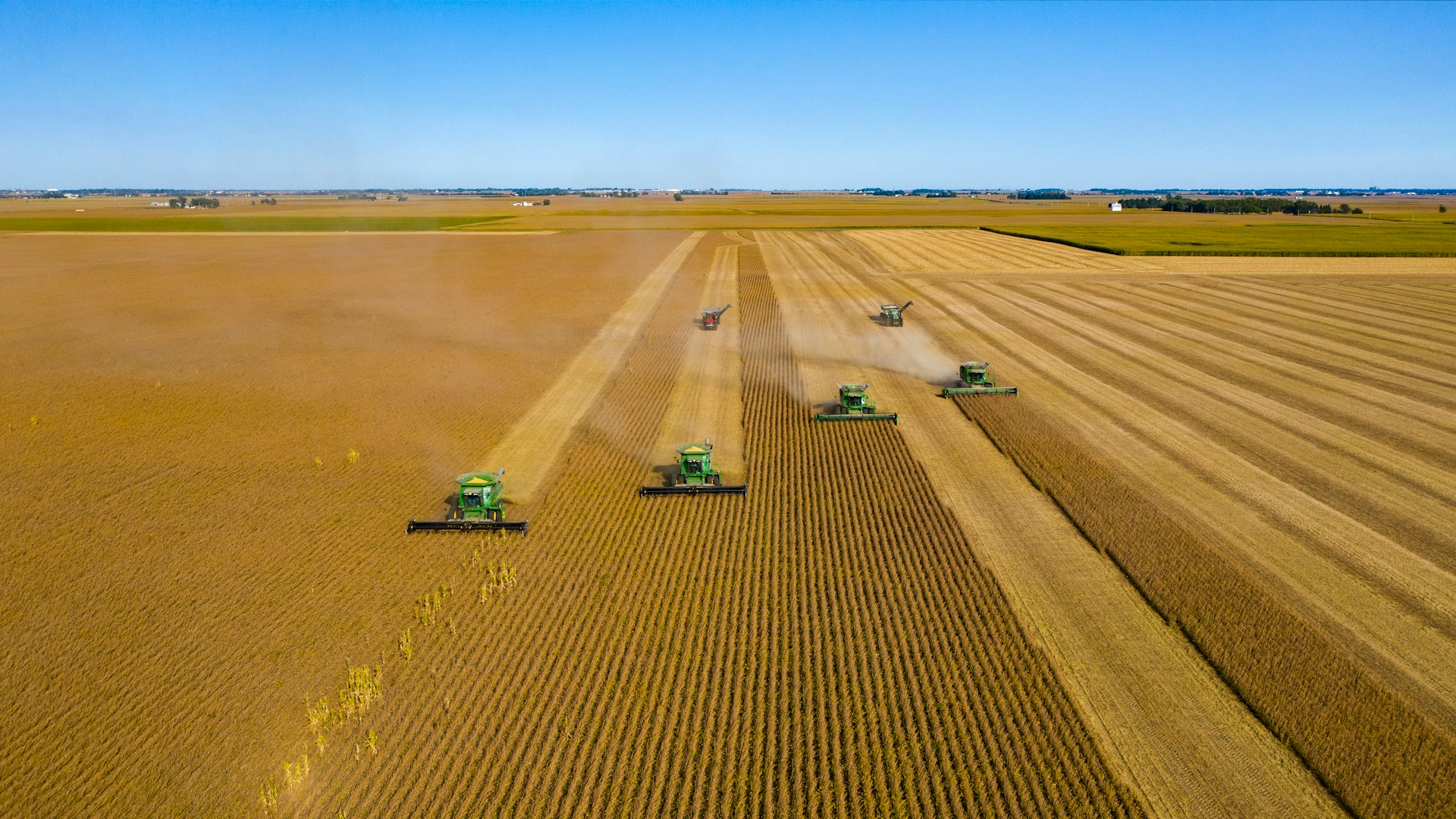What are the best practices for integrating AI into UK's agriculture technology solutions?

The integration of artificial intelligence (AI) into the agricultural sector presents an opportunity for substantial advancements in efficiency, productivity, and sustainability. In the UK, where agriculture plays a crucial role in the economy, leveraging AI and related technologies can transform traditional practices into cutting-edge solutions. This article delves into the best practices for incorporating AI into the UK's agriculture technology solutions, ensuring that farmers, food industry stakeholders, and tech innovators can reap the benefits of this powerful alliance.
The Role of AI in Transforming Agriculture
AI's role in agriculture extends beyond mere automation; it embodies the potential to redefine farming practices. AI technologies, including machine learning, computer vision, and artificial neural networks, are being applied to various aspects of farming, from crop monitoring to food production. By integrating AI, we can achieve more precise data analytics, leading to better decision-making.
A lire également : How a digital agency can elevate your casino gaming brand
Precision Farming with AI
Precision farming is a cornerstone of modern agriculture, and AI enhances its capabilities significantly. By analyzing vast amounts of data collected from sensors, drones, and satellite imagery, AI systems provide farmers with real-time insights into crop health, soil conditions, and weather patterns. This enables more accurate planting, fertilization, and irrigation, ultimately leading to higher yields and resource conservation.
Enhancing Food Safety
In the food sector, ensuring food safety is paramount. AI-based systems can monitor the entire supply chain in real time, identifying potential contamination points and ensuring compliance with safety standards. This is particularly relevant for products like olive oil, where authenticity and purity are critical. AI-driven blockchain technology can track the journey of agricultural products from farm to table, guaranteeing transparency and traceability.
A lire en complément : How to develop an omni-channel retail strategy for UK's boutique fashion brands?
Sustainable Agriculture Practices
The integration of AI into agriculture also promotes sustainable agriculture. AI systems can optimize the use of water, fertilizers, and pesticides, reducing waste and minimizing environmental impact. By implementing AI-based predictive models, farmers can make informed decisions that balance productivity with sustainability, ensuring a healthier ecosystem for future generations.
Leveraging Big Data in Agriculture
Big data is a game-changer in agriculture, offering insights that were previously unattainable. By harnessing the power of big data, farmers can gain a deeper understanding of their operations and make data-driven decisions to enhance productivity and sustainability.
Data Collection and Analysis
The first step in leveraging big data is collecting accurate and comprehensive data from various sources. These can include satellite images, drone surveys, soil sensors, and weather stations. Once collected, the data must be analyzed using machine learning algorithms to uncover patterns and trends. This analysis can reveal critical insights into crop health, soil fertility, and pest infestations, allowing farmers to take proactive measures.
Predictive Analytics
Predictive analytics is another powerful tool enabled by big data. By analyzing historical data alongside real-time information, AI systems can forecast future trends and events. For example, predictive models can anticipate adverse weather conditions, helping farmers prepare and mitigate potential damage. Similarly, these models can predict pest outbreaks, enabling timely interventions to protect crops.
Improving Supply Chain Efficiency
Big data also plays a crucial role in optimizing the agri-food supply chain. AI-driven systems can monitor and manage the entire supply chain, from farm to consumer. By analyzing data at each stage, these systems can identify bottlenecks, reduce waste, and ensure timely delivery of fresh produce. This not only improves efficiency but also enhances the overall quality and safety of food products.
Blockchain Technology in Agriculture
Blockchain technology is revolutionizing various industries, and agriculture is no exception. By providing a transparent and secure platform for recording transactions, blockchain ensures the integrity and traceability of agricultural products.
Ensuring Traceability
One of the primary benefits of blockchain in agriculture is its ability to provide traceability. By recording every transaction on a decentralized ledger, blockchain allows consumers to trace the journey of their food from farm to table. This is particularly important in the context of food safety, as it enables the identification of contamination sources in the event of a foodborne illness outbreak.
Enhancing Transparency
Blockchain also enhances transparency in the agricultural supply chain. By providing a tamper-proof record of transactions, blockchain ensures that all stakeholders have access to accurate and reliable information. This fosters trust among consumers, farmers, and distributors, promoting fair practices and reducing the risk of fraud.
Smart Contracts
Another innovative application of blockchain in agriculture is the use of smart contracts. These are self-executing contracts with the terms of the agreement directly written into code. Smart contracts can automate various processes, such as payments and quality checks, reducing the need for intermediaries and streamlining operations.
AI-Based Systems for Crop Monitoring
Effective crop monitoring is essential for maximizing yields and ensuring the health of agricultural produce. AI-based systems, leveraging technologies like computer vision and fuzzy logic, offer advanced solutions for real-time crop monitoring.
Real-Time Monitoring
By using AI-powered drones and sensors, farmers can monitor their crops in real time. These systems can detect early signs of stress, disease, or pest infestations, enabling prompt interventions. Real-time monitoring also allows for more precise application of inputs, such as water and fertilizers, ensuring optimal growth conditions for crops.
Advanced Image Analysis
Computer vision technology, which involves the use of AI to analyze images, plays a crucial role in crop monitoring. By processing images captured by drones and cameras, AI systems can identify specific issues, such as nutrient deficiencies or pest damage. This analysis is far more accurate and efficient than traditional methods, allowing for timely and targeted responses.
Integrating Fuzzy Logic
Fuzzy logic, a form of multi-valued logic, can be integrated into AI-based crop monitoring systems to handle uncertainty and imprecision. This is particularly useful in agriculture, where conditions are often variable and unpredictable. By incorporating fuzzy logic, AI systems can make more nuanced decisions, improving the accuracy and reliability of crop monitoring.
The Future of AI in Agriculture
As we look to the future, the potential for AI to revolutionize agriculture in the UK is immense. By continually developing and refining AI-based technologies, we can address current challenges and pave the way for a more efficient, sustainable, and resilient agricultural sector.
Collaborative Development
The development of AI in agriculture should be a collaborative effort, involving farmers, researchers, tech companies, and policymakers. By working together, these stakeholders can ensure that AI solutions are tailored to the unique needs of the agricultural industry. Platforms like Google Scholar and Crossref provide access to a wealth of research and knowledge, facilitating informed decision-making and innovation.
Education and Training
To fully realize the potential of AI in agriculture, it is essential to invest in education and training. Farmers and agricultural workers need to be equipped with the skills and knowledge necessary to utilize AI technologies effectively. This includes understanding how to interpret data, operate AI systems, and make data-driven decisions.
Ethical Considerations
As we integrate AI into agriculture, it is crucial to consider the ethical implications. This includes addressing concerns related to data privacy, job displacement, and the potential for bias in AI algorithms. By developing ethical guidelines and frameworks, we can ensure that AI is used responsibly and for the benefit of all stakeholders.
Integrating artificial intelligence into the UK's agriculture technology solutions is not just a possibility; it is a necessity for the future of farming. By adopting best practices for AI integration, we can achieve significant advancements in food production, sustainability, and supply chain efficiency. From precision farming and big data analytics to blockchain technology and real-time crop monitoring, AI offers a myriad of opportunities to transform the agricultural sector. As we move forward, collaboration, education, and ethical considerations will be key to unlocking the full potential of AI in agriculture, ensuring a prosperous and sustainable future for the UK's farming community.
